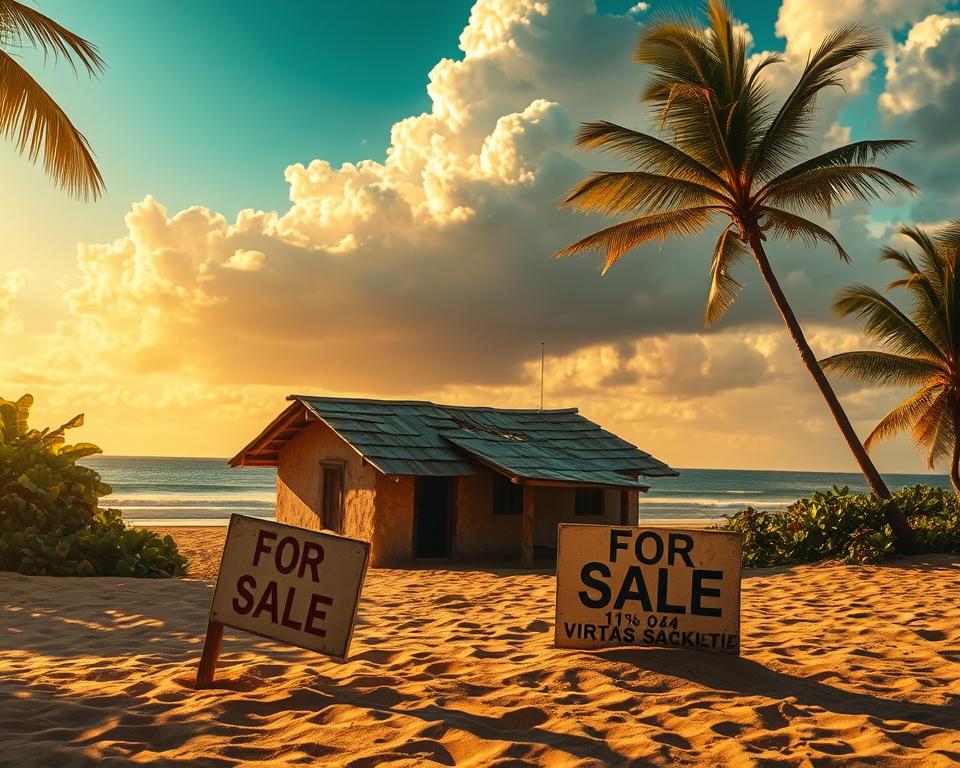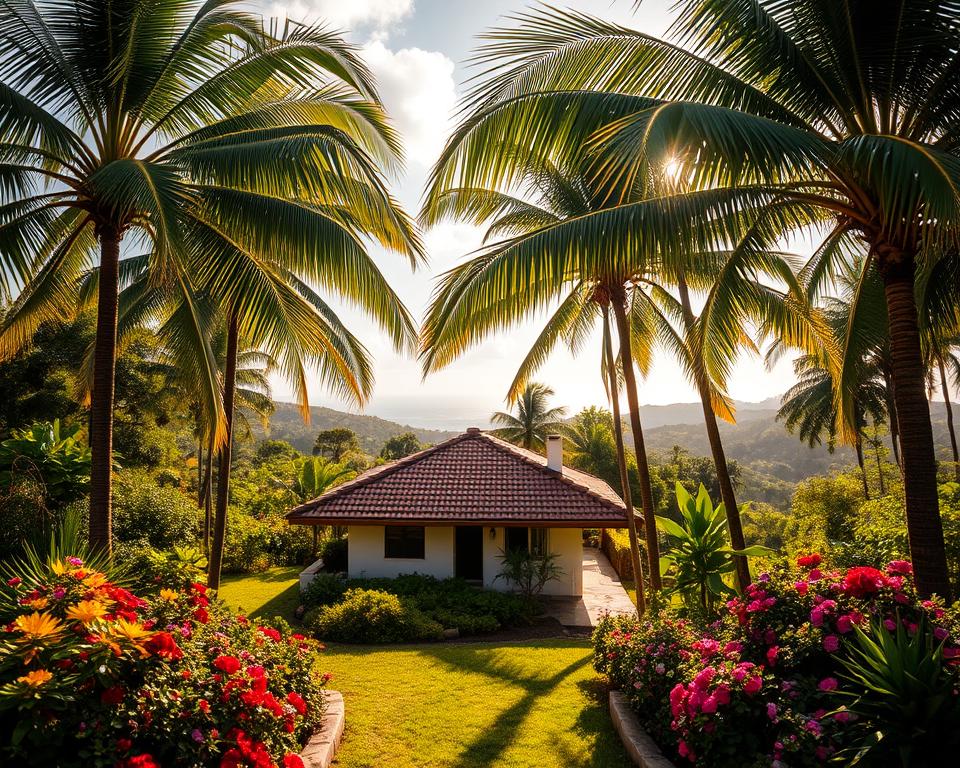Tips for Selling a Home in Costa Rica’s Slow Market
Did you know that some real estate companies claim they can sell a property in Costa Rica in seconds? At Gap Real Estate (Grupo Gap LLC SRL), we simplify buying, selling, or investing in Costa Rica with over two decades of coast-to-coast experience. However, the reality is far from instantaneous. Last year, the Tico Times published an article highlighting “8 reasons why your property in Costa Rica has not sold in 7 years,” showcasing a vast time frame between these extremes.
We understand the challenges of selling a home in Costa Rica’s current market. Our comprehensive guide will explore the realities of the local real estate landscape, providing practical strategies to help homeowners navigate this challenging terrain. We’ll examine the factors contributing to the extended timeline for selling properties and offer actionable advice on pricing, property preparation, and marketing approaches to attract serious buyers.
Understanding Costa Rica’s Current Real Estate Market
Understanding the dynamics of Costa Rica’s real estate market is crucial for homeowners looking to sell their properties. We will examine the current market conditions, focusing on the trends and challenges that are shaping the industry.
Market Trends and Challenges
Costa Rica’s real estate market is influenced by various factors, including economic conditions, tourism trends, and demographic changes. The market is experiencing a slowdown in certain areas, primarily due to an oversupply of properties. We will analyze how these trends are affecting the sale of homes and properties across different regions.
The surplus of available properties relative to buyer demand is a significant challenge. This oversupply is putting downward pressure on prices and extending the time it takes to sell a house.
Supply and Demand Dynamics
The principles of supply and demand are fundamental to understanding Costa Rica’s real estate market. We will explore how the balance between available properties and buyer interest is impacting sales. Regional variations and differences in property types are also crucial factors.
- The influx of baby boomers’ homes into the market is creating an oversupply in specific neighborhoods, particularly for properties that require significant updates.
- Assessing the local micro-market is essential to determine if it’s experiencing oversupply or if there are opportunities to capitalize on specific buyer demands.
By understanding these dynamics, homeowners can set realistic price expectations and develop effective marketing strategies to sell their properties in Costa Rica’s current real estate market.
Why Homes in Costa Rica Aren’t Selling Quickly
The Costa Rican real estate market is currently experiencing a slowdown, with many homes staying on the market for longer than expected. This phenomenon can be attributed to several factors, including unrealistic pricing expectations and changing buyer demographics.
Pricing Expectations
Many homes in Costa Rica are overpriced, leading to a significant decrease in potential buyers. The baby boomers, who have paid off their mortgages, are now looking to downsize to condominiums or smaller properties, flooding the market with larger family homes that are not in line with current buyer demands. These homes often require extensive renovations, making them less appealing to younger buyers who prefer move-in-ready properties.
As a result, sellers need to reassess their pricing strategies to attract potential buyers. Unrealistic pricing expectations can lead to homes staying on the market for extended periods, ultimately resulting in lower sale prices.
Shifting Demographics
The demographics of buyers in Costa Rica are changing, with younger generations having different priorities than previous generations. Both local and international buyers are now seeking modern, move-in-ready properties, rather than older homes that require significant renovations. This shift is creating a mismatch between available properties and buyer preferences.

Understanding these demographic shifts is crucial for sellers to position their properties effectively and target the right potential buyers. By recognizing the differences in expectations between local and international buyers, sellers can adjust their marketing strategies to appeal to their target audience.
The Impact of Seasonal Factors on Property Sales
Understanding the seasonal dynamics is crucial for sellers looking to maximize their property’s sale potential in Costa Rica. The country’s real estate market is influenced by the fluctuations in tourism, which in turn affect the demand for properties.

High Season vs. Low Season Selling
The high season in Costa Rica, which coincides with the dry season, offers a favorable environment for selling properties due to increased tourist activity. Sellers can capitalize on this by listing their properties during this time. In contrast, the low season presents challenges, including reduced buyer traffic. However, sellers who are flexible with their pricing may attract buyers looking for deals.
- Advantages of selling during the high season include increased exposure and higher demand.
- Disadvantages include higher competition and potentially higher pricing expectations.
- The low season offers less competition but also fewer potential buyers.
Timing Your Sale Strategically
To maximize the chances of a successful sale, it’s essential to time the listing strategically. The shoulder season, which occurs in May and November, can be an excellent time to list properties, as sellers may be more willing to negotiate. Preparing the property in advance of the high season can also ensure it’s market-ready when buyer traffic increases.
- Prepare your property for the high season by making necessary improvements.
- Adjust your pricing strategy according to the season.
- Tailor your marketing efforts to reach potential buyers at the right time.
Setting the Right Price: The Most Critical Factor
The key to selling your Costa Rican property lies in determining the optimal price that attracts serious buyers. Sellers must consider their motivation for selling and the current market conditions to set a price that is both competitive and realistic.
If you are selling out of necessity, such as requiring immediate liquidity or dealing with a family crisis, time is of the essence. In such cases, pricing your property competitively and, in some instances, below market value can expedite the selling process. Conversely, if your motivation is driven by long-term goals, such as recouping an investment or profiting from a development, you may be willing to wait patiently for the right buyer willing to pay a favorable price.
The Challenge of Comparative Market Analysis in Costa Rica
Conducting a comparative market analysis (CMA) is crucial in determining the right price for your property. However, in Costa Rica, this can be challenging due to the unique characteristics of the local real estate market. Factors such as the property’s location, condition, and amenities must be considered. We will explore how to balance the need for realistic pricing with the desire to maximize return, offering different approaches based on the seller’s timeline and motivation.
- Pricing strategies specifically designed for Costa Rica’s current slow market conditions to attract serious buyers.
- Strategic underpricing to generate multiple viewings and potential offers, creating momentum in an otherwise stagnant market.
- Staged pricing approaches, including when to consider price reductions and how to implement them effectively.
Pricing Strategies for a Slow Market
In a slow market, it’s essential to be flexible and responsive to buyer feedback and market trends. Different property types and locations may require different pricing strategies. For instance, luxury properties often follow different patterns from mid-market homes. Understanding the relationship between price, time on market, and final sale outcome is crucial for making informed pricing decisions.
Working with real estate professionals can help establish a pricing strategy that aligns with current market conditions and your personal selling goals. By understanding the local market dynamics and adopting a flexible pricing strategy, you can increase your chances of selling your property successfully in Costa Rica’s slow market.
Location Matters: Understanding Micro-Markets in Costa Rica
To successfully sell a property in Costa Rica, one must grasp the nuances of its micro-markets. The country’s diverse regions, from coastal areas to urban centers and mountainous zones, each have their unique market dynamics.
Diverse Property Types
Costa Rica’s real estate market is characterized by a variety of property types, including coastal, urban, and mountain properties. Coastal properties, such as beachfront condos in Guanacaste, attract a different demographic compared to urban homes in cities like San José or mountain retreats in areas like Tarrazu.
The market dynamics of these properties differ significantly. For instance, beach properties are often sought after by tourists and expatriates looking for vacation homes or rental investment opportunities.

Neighborhood Considerations
Beyond the type of property, the specific neighborhood plays a crucial role in determining its marketability and value. Established expatriate communities like Escazú or Tamarindo have different market dynamics compared to emerging areas or predominantly local neighborhoods.
Factors such as neighborhood amenities, security considerations, and community features can significantly impact buyer interest and property values. Understanding these neighborhood-specific considerations is key to positioning a property effectively within its immediate context.
Preparing Your Property to Stand Out
In Costa Rica’s current real estate landscape, making your property shine is key to attracting buyers. With hundreds of homes flooding the market, often at unrealistic prices, it’s essential to differentiate your property to attract potential buyers.
Essential Home Improvements Before Selling
Before listing your home, consider essential improvements to enhance its appeal. A remodel or renovation can significantly increase your home’s value. For instance, a home in Sabana – San José, built in 1975, was initially priced at $220,000 but received an offer for $140,000 after pricing adjustments. This example illustrates the importance of realistic pricing and necessary renovations.
- Update outdated fixtures and decor to appeal to modern buyers.
- Address any structural issues to build trust with potential buyers.
- Enhance curb appeal to make a great first impression.
Staging Tips for Costa Rican Properties
Effective staging can make your property more attractive to potential buyers. In Costa Rica, emphasizing indoor-outdoor living spaces can be particularly effective due to the country’s climate and lifestyle.
- Highlight natural light and tropical features.
- Stage properties according to the target buyer, whether local families, expatriates, or investors.
- Use local resources and design sensibilities to create a culturally sensitive staging approach.
By preparing your property with these strategies, you can significantly improve its appeal and selling potential in Costa Rica’s competitive real estate market.
Effective Marketing Strategies for Selling a Home in a Slow Market in Costa Rica
In the slow Costa Rican real estate market, a well-planned marketing strategy can make all the difference. To successfully sell a home, it’s essential to employ a combination of traditional and modern marketing techniques.
Digital Marketing Techniques
Digital marketing plays a vital role in reaching potential buyers in today’s technology-driven world. We can leverage various digital platforms to showcase your Costa Rican property to targeted audiences both locally and internationally. This includes creating engaging visual content that highlights your property’s unique features and appeals to different buyer segments.
By utilizing targeted online advertising, we can identify and reach specific buyer demographics. This approach ensures that your property is visible to those most likely to be interested in it.
Leveraging Social Media and International Platforms
Social media platforms such as Instagram, Facebook, YouTube, and LinkedIn can be effectively used for different aspects of property marketing. We can create a cohesive cross-platform strategy that maintains consistent messaging while adapting to each platform’s strengths.
Additionally, listing your property on international real estate platforms and property portals can connect your listing with potential buyers from key foreign markets. Building and leveraging networks of real estate professionals through social platforms can also significantly expand your property’s visibility.
At Gap Real Estate, with over two decades of coast-to-coast experience, we simplify buying, selling, or investing in Costa Rica. Our expertise in the local market enables us to provide effective marketing strategies tailored to your property’s needs.
The Role of Professional Photography and Virtual Tours
The real estate landscape in Costa Rica has evolved, with professional photography and virtual tours becoming essential tools for showcasing properties to potential buyers, especially in a slow market.
Showcasing Your Property’s Best Features
Professional photography plays a crucial role in highlighting the best features of a property. High-quality images can capture the unique characteristics of a home in Costa Rica, from its architecture to its surroundings. Key aspects to focus on include:
- Natural lighting and interior design elements
- Landscape and outdoor spaces
- Unique features such as ocean views or lush gardens
By emphasizing these aspects, sellers can create an attractive online presence for their property.
Creating Immersive Virtual Experiences
Virtual tours have revolutionized the way potential buyers interact with properties. Technologies such as 3D tours, video walkthroughs, and drone footage provide comprehensive views that static images cannot match. These immersive experiences:
- Allow buyers to explore properties remotely, saving time and resources
- Provide a more engaging and interactive experience
- Help address buyer questions and concerns before in-person viewings
By incorporating virtual tours into their marketing strategy, sellers can attract more serious buyers and differentiate their property in a competitive market.
Working with the Right Real Estate Agent
When navigating Costa Rica’s slow market, partnering with the right real estate agent can make all the difference. The real estate landscape in Costa Rica is complex, with factors such as location, property type, and pricing playing significant roles in the sale of a property.
What to Look for in a Costa Rican Real Estate Professional
To find the right agent, look for professionals with a deep understanding of Costa Rica’s real estate market. Gap Real Estate, for instance, offers extensive local knowledge and comprehensive services, including relocation logistics and legal guidance. When evaluating potential agents, consider their experience with properties similar to yours in terms of location, type, and price point.
Questions to Ask Before Hiring an Agent
Before hiring an agent, it’s essential to ask the right questions. Inquire about their marketing strategies for reaching both local and international buyers. Assess their communication expectations and reporting processes. Questions about their negotiation skills and approach are also crucial, especially in a buyer’s market. Additionally, understanding their network of professional connections, such as photographers and attorneys, can provide insight into their ability to offer comprehensive support.
Discussing commission structures and marketing budgets transparently is vital to ensure alignment of expectations. By asking the right questions, you can ensure that your chosen agent has the expertise and approach needed to successfully navigate Costa Rica’s unique real estate market.
Legal Considerations When Selling Property in Costa Rica
When selling property in Costa Rica, understanding the legal landscape is crucial for a smooth transaction. Sellers must be aware of the various legal requirements and procedures to avoid potential pitfalls.
Understanding Tax Implications
Selling property in Costa Rica involves several tax implications that sellers need to understand. The transfer tax, known as “impuesto de transferencia,” is typically 1.5% of the property’s sale price. Additionally, sellers may be subject to capital gains tax, which varies depending on the seller’s residency status and the property’s purchase and sale prices. It’s essential to consult with a tax professional to navigate these tax obligations effectively.
Foreign sellers, in particular, should be aware of their tax obligations in Costa Rica. The country has specific regulations regarding the sale of property by non-residents, including potential withholding taxes. Understanding these implications can help sellers plan and minimize their tax liability.
Required Documentation and Procedures
The sale of property in Costa Rica requires several key documents and procedures. Ensuring that your property’s registration is current and accurate with the National Registry (Registro Nacional) is vital. Sellers must also provide a clear title to the property, which may involve resolving any outstanding title issues before the sale.
Property surveys, or “planos catastrados,” are another critical aspect of the sale process. Sellers should verify if their property survey is up-to-date and compliant with current regulations. Notaries play a significant role in Costa Rican property transactions, handling the sale’s legal aspects. Selecting a qualified notary is crucial for ensuring that the sale is handled correctly.
How Gap Real Estate Can Help You Navigate a Slow Market
With over two decades of experience, Gap Real Estate simplifies the process of selling your home in Costa Rica’s current market. Our deep local knowledge allows us to navigate the complexities of the real estate market confidently.
We provide end-to-end support, handling everything from initial valuation to marketing, negotiation, and closing. Our comprehensive approach ensures that all aspects of the selling process are addressed, giving you peace of mind.
Our understanding of buyer demographics and preferences helps position your property effectively, even in slow market conditions. With Gap Real Estate, you gain access to a coast-to-coast network, connecting you with potential buyers from across Costa Rica and internationally.
By leveraging our expertise, you can secure a successful sale in challenging market conditions. Our results-driven service prioritizes your success, whether you’re selling your dream home or securing a strategic investment.
Conclusion
Navigating Costa Rica’s real estate market can be challenging, but with the right strategies, sellers can succeed. To sell a home in Costa Rica’s current slow market, it’s crucial to have realistic expectations and a strategic approach. Proper pricing is foundational, impacting all other aspects of the selling process. Understanding Costa Rica’s unique market dynamics, including seasonal factors and micro-market variations, is also vital.
Professional presentation, effective marketing, and working with experienced real estate professionals can significantly impact selling success. Sellers must also address legal and tax considerations to ensure smooth transactions. At Gap Real Estate, we simplify every step, ensuring clarity, confidence, and a stress-free experience. With two decades of experience, we’re committed to client success. Contact us for personalized assistance in navigating Costa Rica’s complex real estate landscape.




